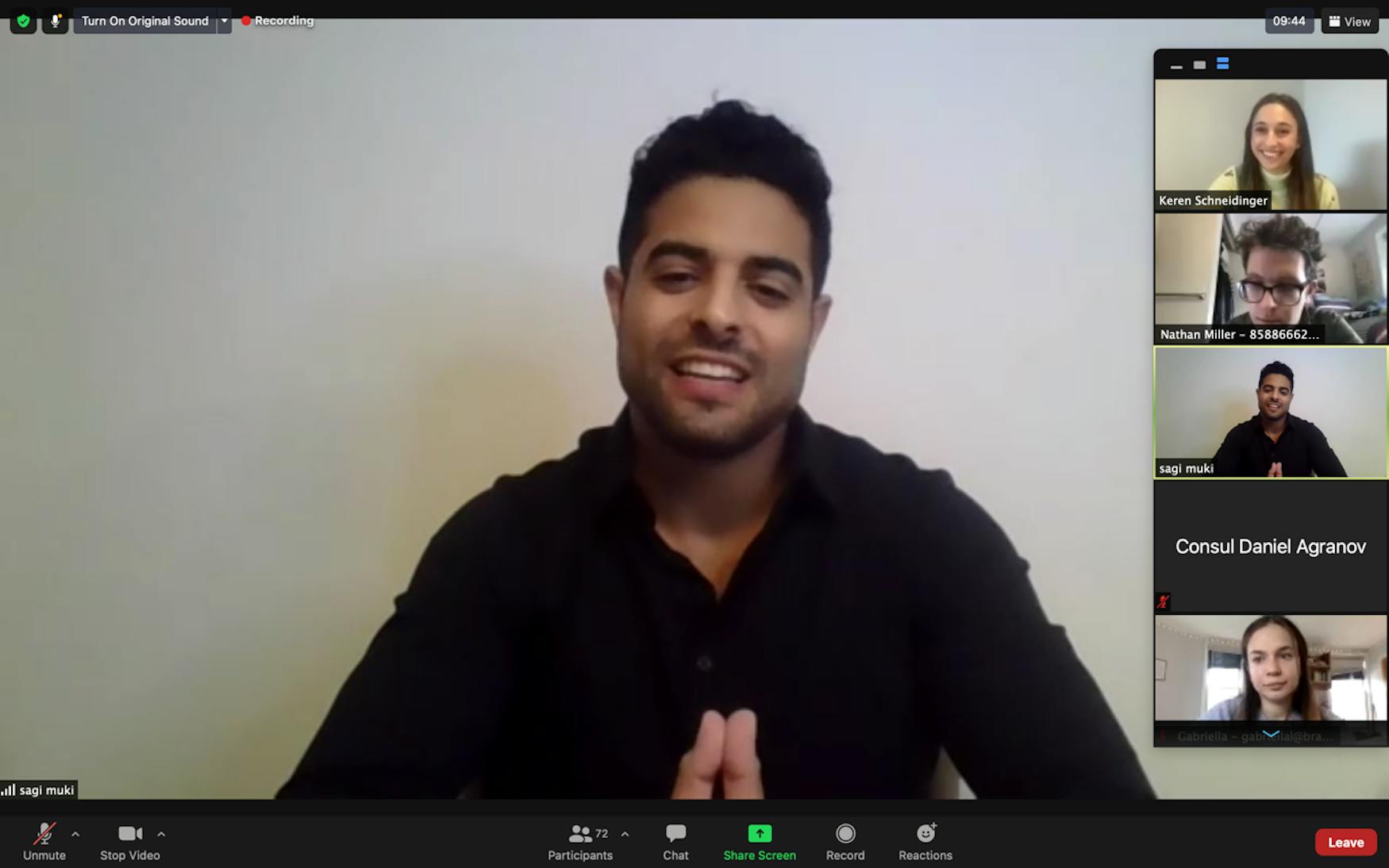Judo world champion Sagi Muki advocates for unity between nations
Muki discussed his judo career and how the sport has helped him pave the way toward equality.
The Schusterman Center for Israel Studies hosted a Zoom conversation on Feb. 28 with Israeli judo world champion Sagi Muki. With Keren Schneidinger ’22 moderating the event, Muki talked about his career as a judo player, or judoka, with particular emphasis on how his experiences shaped his commitment toward using sports to promote empathy between countries with fractious relationships.
As an Israeli judoka, Muki has experienced tensions when traveling to Islamic countries for Judo tournaments. Muki competed in Abu Dhabi Grand Slam in 2015, where the Israeli team was shadowed by a security team and unable to compete under the Israeli flag. In another tournament in Morocco, he received jeers when the announcer mentioned he was from Israel, and an Egyptian judo player, Abdelaal, refused to shake Muki’s hand after the end of their match. However, in 2018, negotiations between the Emirati authorities and the International Judo Federation resulted in the Israeli team receiving equal treatment and recognition at the Abu Dhabi Grand Slam. Muki won the tournament, hearing the Israeli anthem play at the awards ceremony for the first time in Abu Dhabi. “I can feel the mission and responsibility [to use] every opportunity I have to put Israel on the map,” Muki said.
Muki discussed his experiences regarding the pandemic. He is the first Israeli world champion, winning the Tokyo Judo World Championships in 2019 and reaching world number one as a Judoka. He thought that he would “conquer 2020,” but then “in March, I found myself at home, surrounded by four walls. … The momentum stopped,” Muki said.
One of Muki’s proudest moments was winning the title at the 2018 European Championships. According to Muki, although he did not feel that he was at his physical peak, his mental strength helped to carry him to victory. He wanted to prove to himself that he could win the tournament for the 5,000 Israelis who came to watch. Muki said that for him, victory is not only the medal, but it is also the “injuries, losses, hard training [and] bad training.” He continued, “When we win each of the challenges and do not give up, this is the victory. The medal is the bonus,” he said.
During his travels to different tournaments, Muki had the opportunity to form close friendships with judo players from countries that have fractious relationships with Israel. He befriended Saeid Mollaei, a Mongolian judo player representing Iran. During the Tokyo World Championships, the Iranian government ordered Mollaei to throw his semifinal match to avoid a potential final match with Muki. While Mollaei complied with this order, he exposed the pressure Iran placed on him to throw the match. He left Iran, traveling to Germany on a visa and becoming a citizen of Mongolia, continuing to represent the country in subsequent tournaments.
Support for both players remains strong in Iran and Israel, according to Muki. During the Tokyo championships, Muki recounted how he stayed behind after the tournament for press-related business and engaged with the delegation from Iran. They bonded over their shared admiration of Mullaei’s courage.
Muki’s path as a judoka was beset by injury. Around a month before the 2016 Rio Olympics, Muki injured his back and was unable to train, undergoing surgery only two weeks prior to the games. He recounted that against the odds, he made it to the semifinals, but he lost to athletes from Azerbaijan and Georgia, finishing in 5th place overall. “I was optimistic in myself but it didn’t matter. … Physically I was at 30%,” he said. His injury worsened after the Olympics, putting his career in jeopardy. He recounted watching a video of one of his previous matches and thinking, “I didn’t know if I would get back to judo, and even if I did, I didn’t know if it would be the same.” His drive to return to his pre-injury condition led him from doctor to doctor, undergoing painful injection treatments, he said.
Muki found that his motivation to keep moving forward, beyond a passion for judo, came from the people he was fighting for. Beyond his desire to fight for the Israeli people, he wished to give back to those who helped him on his path to success. He recalled that one time when waiting with his father in the hospital to undergo treatment, a fellow patient came up to them and praised Muki for accompanying his father to get his injection when it was the other way around. “My father gave a lot to me,” Muki said.
Muki slowly recovered and returned to the world of judo, growing in strength and confidence.
Muki’s experiences as a judoka has prompted him to pursue a number of philanthropic efforts. In response to the pandemic, Muki raised around $50,000 by auctioning off various personal items, including his Tokyo 2019 uniform, and used the money to donate respirators to his hometown of Netanya, Israel. After his judo career comes to a close, he plans to continue his philanthropic endeavors, lecturing around the world on unity between all nations.
Editor’s Note -- Attendees of this event received $20 gift cards, which the Justice declined, as accepting gifts does not adhere to our journalistic standards.




Please note All comments are eligible for publication in The Justice.